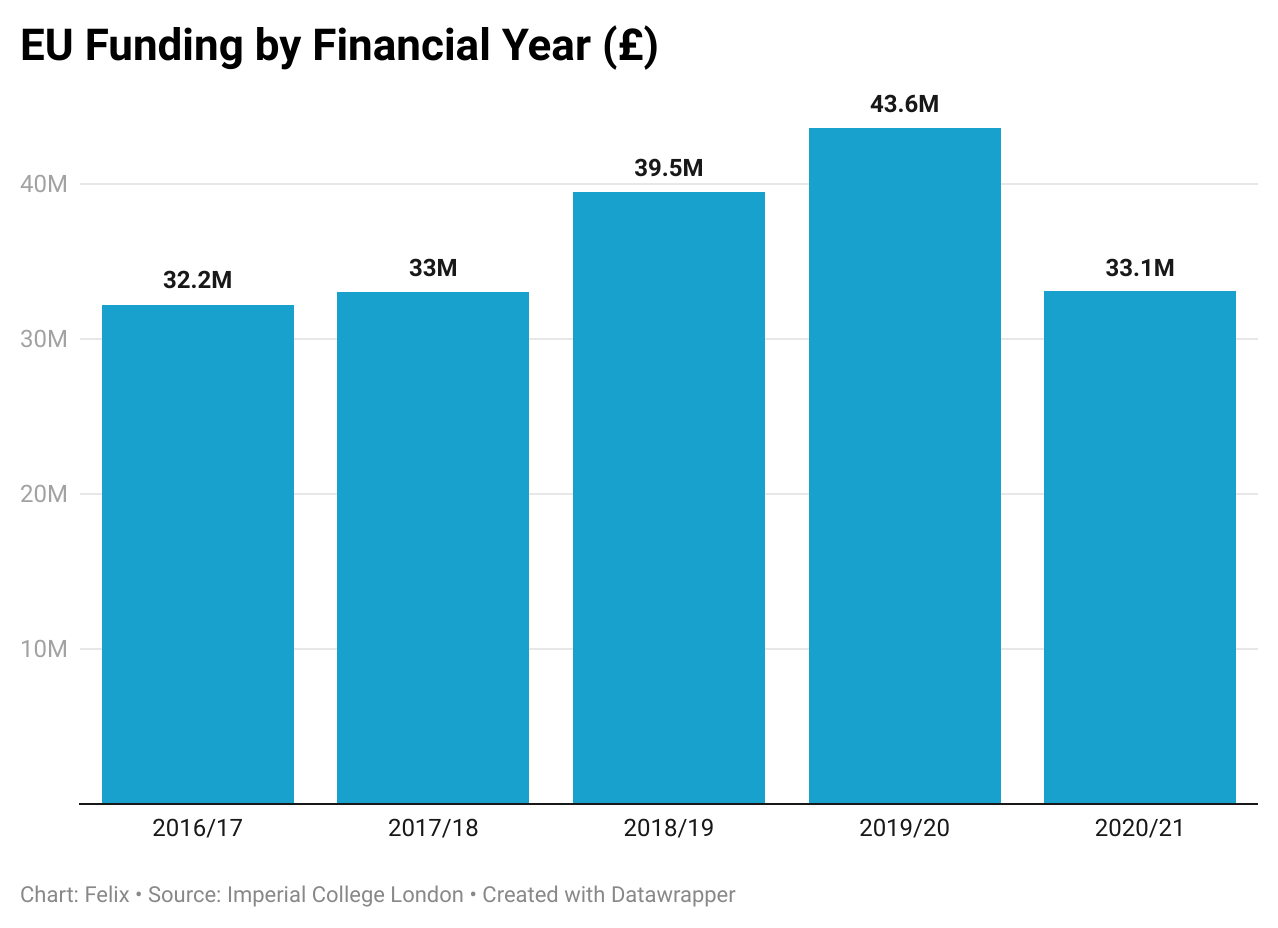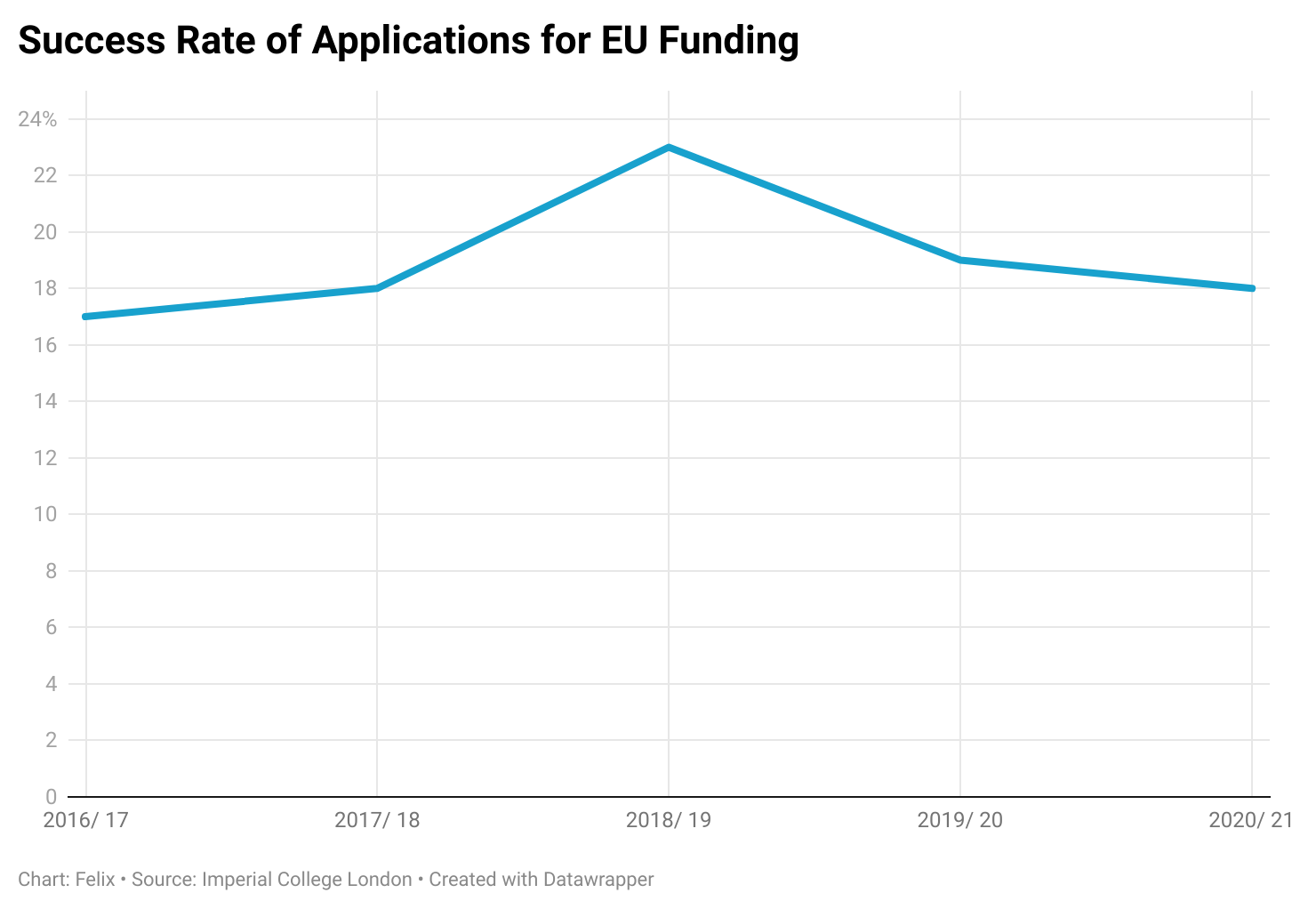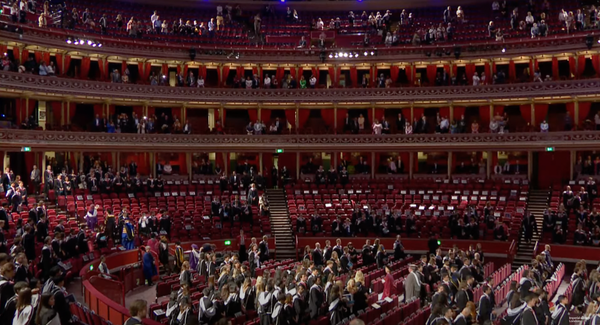Imperial research funding stable despite Horizon Europe uncertainty
Data available on research funding acquired by Imperial College over the last five years paints an interesting picture of the College’s future prospects.

Research funding is split into seven different categories when reported. These are EU Commission, Charity, Government & NHS, Industry, Research Councils, and Other. Research Councils are governed by the BEIS governmental department. Imperial tends to get the most substantial amount of research funding from research councils and charities. The 2019/20 year may be considered anomalously lucrative, with £34 million of the £107 million total from charities being received in a grant towards malaria research by the Gates Foundation.
Data available on research funding acquired by Imperial College over the last five years paints an interesting picture of the College’s future prospects. Brexit, Covid and a backdrop of supposed championing of scientific discovery by the UK government all play their part in determining whether the College can continue to produce the world-leading research that earned it praise in the recently published REF 2021 results.
Imperial College most recently reported a turnover of over £1 billion, a large proportion of which was made up by research funding.
The data available for 2021/22 covers exactly two thirds of the financial year, and a very basic multiplier has been applied to all figures to obtain an estimate of what the total figures for 2021/22 will be.
Brexit has been largely decried by the scientific community, and poses a complex problem in regards to research funding. Many scientists have cited the network of open collaboration that EU membership provides as a key reason to remain associated with Horizon Europe, a metric that cannot be quantified through looking at changes in research funding.
The EU and Horizon Europe
Following the Brexit vote, many may have assumed that research funding from the EU would dry up, through disdain towards the British as well a lack of formal association with the EU. The available data actually suggests a positive trend for Imperial, despite a wider downward trend in EU funding to the UK. In 2019 the Royal Society reported that the UK’s share of EU research funding had fallen by 28% since 2015, and that the number of European researchers coming to work in the UK as part of EU fellowship programmes had fallen by a third.
The years 2016/17 to 2019/20 saw a steady increase in funding awarded by the EU to Imperial, from £32.2 million to a peak of £43.6 million. This then drops back down to £33.1 million in 2020/21 (see graph).

Success rates for funding applications (calculated very simply by dividing the value of funding received by the total amount of funding applied for in a given year) shows a relatively similar trend. Starting at 17% in 2016/17, the success rate rises to 23% in 2018/19, and falls back to 18% in 2020/21. Felix was advised by the College that this data is not the data they would normally use to calculate the success rate of funding applications, with an Imperial College spokesperson saying “Imperial has consistently made the case that our researchers need access to Horizon Europe. Collaborations in Europe form the essential building block to wider global engagement are vital to maintaining research excellence.
“Our researchers continue to apply for and win funding from Horizon Europe, without any significant losses. The UK government has guaranteed to underwrite the Horizon Europe grants already awarded. We welcome this guarantee, whilst continuing to make the case for the UK and the EU to find agreement on association as soon as possible - this is in the interest of everyone and a clear win for European science”.
These outcomes are notable as the relatively on-par results for the 2020/21 financial year include several months after the end of the Brexit transition period, where some may have expected funding to take a down turn.
Data exists for the 2021/22 financial year, correct up to 31/03/22. Felix was advised by the College that extrapolating from this data would be disingenuous, so we will instead just provide the data as we have seen it: application value to the EU from the College this year so far equals £144,772,862, and total award value so far equals £12,086,315, or around 8% of the application value. This percentage does not represent an accurate indicator of EU funding application success for the 2021/22 financial year.

UK Government Spending
In the March 2020 budget the Chancellor set a target of government spending on R&D of £22 billion per year by 2025. This year, the Business, Energy and Industrial Strategy department lowered this target to £20 billion in another statement, which is disappointing for many scientists, however still far more than the £15.3 billion spent in 2020. From this news, one might expect research grants from the UK government and from research councils to start improving, as that received from the European body decreases.
Currently, funding awarded by research councils to Imperial this year stands at £85.8 million, suggesting a total of £128.8 million by the end of this financial year. This stands at slightly more than last year’s taking of £124.9 million, but slightly less than the £129 million taken in 2019/20, and indeed the £133.4 million awarded in 2017/18. Certainly not the significant increase that one might have hoped for.
Funding received under the ‘Government and NHS’ heading paints a slightly rosier picture. So far this year, the College has received £49.7 million in this category, suggesting a total of £74.6 million by the end of July. This is substantially more than the £48 million received in the whole of 2020/21, and comes close to the peak of funding received from this funding channel, which stands at £76.4 million and was received in 2017/18. 17/18, however, was anomalously high, and the average for the previous five years excluding 2017/18 is £52.5 million.









